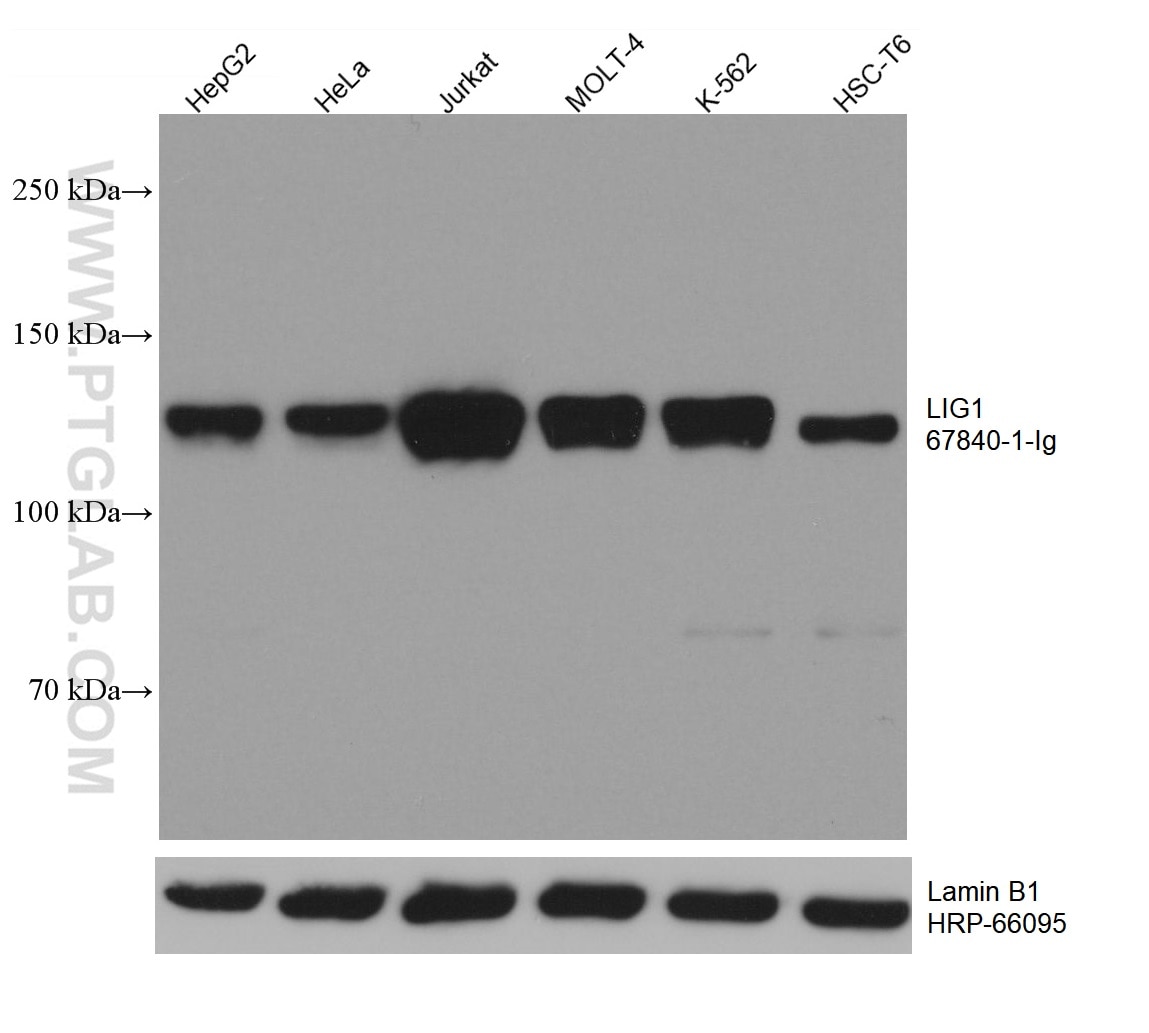LIG1 Monoklonaler Antikörper
LIG1 Monoklonal Antikörper für WB, ELISA
Wirt / Isotyp
Maus / IgG2b
Getestete Reaktivität
human, Maus, Ratte
Anwendung
WB, CoIP, ELISA
Konjugation
Unkonjugiert
CloneNo.
3D9G8
Kat-Nr. : 67840-1-Ig
Synonyme
Galerie der Validierungsdaten
Geprüfte Anwendungen
| Erfolgreiche Detektion in WB | HepG2-Zellen, HeLa-Zellen, Jurkat-Zellen, K-562-Zellen, MOLT-4-Zellen |
Empfohlene Verdünnung
| Anwendung | Verdünnung |
|---|---|
| Western Blot (WB) | WB : 1:5000-1:50000 |
| It is recommended that this reagent should be titrated in each testing system to obtain optimal results. | |
| Sample-dependent, check data in validation data gallery | |
Veröffentlichte Anwendungen
| WB | See 1 publications below |
| CoIP | See 1 publications below |
Produktinformation
67840-1-Ig bindet in WB, CoIP, ELISA LIG1 und zeigt Reaktivität mit human, Maus, Ratten
| Getestete Reaktivität | human, Maus, Ratte |
| In Publikationen genannte Reaktivität | human |
| Wirt / Isotyp | Maus / IgG2b |
| Klonalität | Monoklonal |
| Typ | Antikörper |
| Immunogen | LIG1 fusion protein Ag12489 |
| Vollständiger Name | ligase I, DNA, ATP-dependent |
| Berechnetes Molekulargewicht | 919 aa, 102 kDa |
| Beobachtetes Molekulargewicht | 130 kDa |
| GenBank-Zugangsnummer | BC108318 |
| Gene symbol | LIG1 |
| Gene ID (NCBI) | 3978 |
| Konjugation | Unkonjugiert |
| Form | Liquid |
| Reinigungsmethode | Protein-A-Reinigung |
| Lagerungspuffer | PBS mit 0.02% Natriumazid und 50% Glycerin pH 7.3. |
| Lagerungsbedingungen | Bei -20°C lagern. Nach dem Versand ein Jahr lang stabil Aliquotieren ist bei -20oC Lagerung nicht notwendig. 20ul Größen enthalten 0,1% BSA. |
Hintergrundinformationen
DNA ligase I (LIG1) joins DNA strand breaks during DNA replication and repair transactions and contributes to genome integrity. 67840-1-Ig is raised agains the C-terminal 670-919 aa residues of the human DNA ligase 1.
Protokolle
| Produktspezifische Protokolle | |
|---|---|
| WB protocol for LIG1 antibody 67840-1-Ig | Protokoll herunterladen |
| Standard-Protokolle | |
|---|---|
| Klicken Sie hier, um unsere Standardprotokolle anzuzeigen |
Publikationen
| Species | Application | Title |
|---|---|---|


